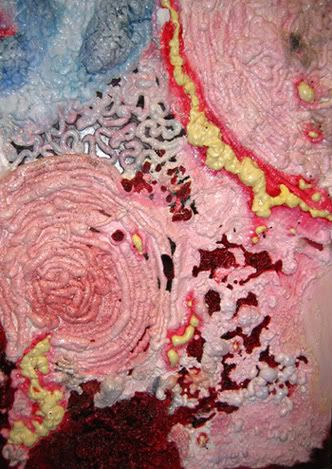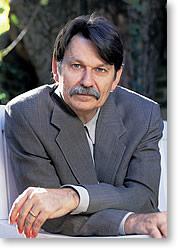As a former sportswriter for the
Philadelphia Inquirer, and one of the first American females at that,
Sarah Freligh writes so convincingly about the life of fictional baseball pitcher Al Stepansky, I’d bet that men from all over the country who’ve ever played the game will wax rhapsodically about their own by-gone days on the diamond once they’ve read her book. If the best poets write the reader’s life, as asserted by poet and novelist Stephen Dobyns, then Freligh is one of our best poets. And you don’t have to be male or a baseball player to appreciate and read your life in these poems.
But I’m an American male, and hell yes, I played ball. Might have made it big too, like my uncle who played for the Brooklyn Dodgers’ farm system, or my distant relative Napoleon Lajoie, Ty Cobb’s rival. Lajoie’s in the Hall of Fame. Sure as the Cubs might have won a World Series, I might have made it, and like my late father-in-law who knew the entire 1932 Cubs World Series line-up, I kept hoping. For most, life is more Cub than Yankee. Who remembers Kiki Cuyler and Gabby Harnett next to Babe Ruth or Lou Gehrig; Lou Warnke over Lefty Gomez? Exactly.
My big moments in baseball are more bear than bull, hitting 4 for 4 in a high school game my father attended, both rare events, feeling elated and proud, a naiveté.
Dad, aren’t I a good hitter? You’re good, Son, but I was better. Slap! Or there I am, pitching a no-hitter in the first inning against Lockport, in May, when the game gets called on account of snow. That’s Buffalo, and I never pitched again. The rest can only be described, à la baseball innovator Bill Veeck in
The Hustler’s Manual, as self-inflicted wounds.
Yes, baseball leaves us more Cub than Yankee, more Grimes and Grimm than Babe and Iron Horse; it makes poet-philosophers of us all, or in my case, a psychotherapist, which surely explains why I’m a Cubs fan, because like Charlie Brown, I worry about how the losers feel.
About baseball and life, former Yale President and 7th Commissioner of Baseball, A. Bartlett Giamatti was right when he wrote in “The Green Fields of the Mind” (
Yale Alumni Magazine, November 1977),
It breaks your heart. It is designed to break your heart. The game begins in spring, when everything else begins, and it blossoms in summer, filling the afternoons and evenings, and then as soon as the chill rains come, it stops and leaves you to face fall alone.
This is what we find in
Sort of Gone, Sarah Freligh’s first full-length poetry collection (
Turning Point, 2008), and more importantly, her protagonist, smart-ass jock Al Stepansky from Buffalo, though I picture Lackawanna with its dreary smoke stacks and blackened bricks overlooking the Niagara River. Does anything but the likes of Stepansky come from such a place? Probably so, but we don’t care, caught up as we are in the trials and triumphs of this fragile, cocky pitcher as he makes his way to the Bigs, as he’s broken in by his alcoholic father’s chin music the day he receives his first mitt, in “Lesson,”
Time you learned something,
his father says, finishing off
his first pint of the day
and there will be more,
…Before dinner they play
catch in the street, shin-deep
in snow. No coats. We ain’t girls,
his father says, though you throw like one,
walks back to Al, slaps
him across the face with his callused
hand, says Son, that’s how the ball
should sound when it hits the glove.
That’s the sound Freligh makes throughout the collection, a hard slap on leather from the heat and sliders of Stepansky’s life, before, during and after his seventeen years in the majors. And Al has been hit, plenty. We feel it in the language of Freligh’s poems, especially in the “No Hitter” cycle, four poems that anchor the book, anchor Al, reveal his character, and so doing, tell us something of ourselves. Like when Al comes close to perfection, his
Gloria in excelsis deo, his
Gloria Dombrowski, his
gloria in a whorehouse deo perfection, in “No Hitter, Ninth Inning,” the last poem in the short cycle.
We learn about our need for hope, however futile, how humor and diversion provide relief when no relief is warming up in the bullpen, and we’re standing all alone atop our little mound, because like pitchers, we’re all dying out there. Why else are we so consumed with sex, the hoped-for bliss where anything’s possible, like Al’s screaming fans compared to schools of fish that get away? We all want to catch the attention and adoration of another, and our minds never stop churning, for better or worse, on our way to the top, only to find the inevitable slide on the other side, and that’s when the story deepens, gets most interesting, when Al begins to fess up to how
The Show really goes, how it ends.
And if it ends well, we get wisdom. If not, we get Al all washed-up, reliving his too brief moments of glory, a most entertaining guide to spiritual awakening. I’ll take Stepansky’s curveballs, screwballs and splitters over a Sunday sermon any day.
Reading
Sort of Gone put to mind something famed baseball essayist and fiction editor for
The New Yorker Roger Angell said,
I felt what I almost always feel when I am watching a ballgame. Just for those two or three hours, there is really no place I would rather be. Indeed. A few hours with Stepansky is time well spent.
Foreshadowing Al’s fate, the collection’s title poem lets us know this is a story about sex and death, that ancient theme we’ve come to expect in literature, and
Sort of Gone has good fun with it, despite the tragic moments. In the poem “Sort of Gone,” we learn of Al’s teammate at the moment of his dismissal from the team:
Tommy’s locker’s bare of everything but
last month’s Playmate—Miss May, a string
of pearls threaded through her black bush—
taped where the team can reach up, rub
her boobs for luck. Tommy, who once told
a reporter he sort of believed in extraterrestrials,
believed that Jesus had been an alien—how
else could he walk on water? A rightie
with a lefty’s head, said the story. Tommy,
just out of the shower when Skip squinted
through the gloom of steam, asked to see him.
A dozen bare backs turned ignorant out of respect
or fear. Now, looking at Miss May they think
of Tommy, remember how nuts he was,
laugh until their guts ache, forgetting
that one day they’ll all be sort of gone.
Given all this extraterrestrial angst, Freligh gives us Jesus as cabbie to the fates. Here’s an excerpt from “Your Life Until Now”—
…though His son’s the one you picture behind the wheel, a lit
cigarette dangling from his lips, chauffeur’s cap askew,
Where to, dude? He says, a yellow glow behind Him…
a Jesus who becomes
…just another guy soldiering through life,
marching through sorrow and loss like the rest of us…
What will Al do when he’s no longer in The Show, no longer the man,
Al! Al! Al! poking staccato holes in heaven through which angels / will fall, Gloria in excelsis deo… (“No Hitter, Ninth Inning”)? As his post-game answer to reporters regarding his thoughts on the mound suggests,
Nothing, except to eventually sell Cadillacs and dream of his return to baseball. We find out in “After Seventeen Years, The End,” he will buy
a round for the house just like his old man. Same hands and face, all hot air and promise.
Everything comes around in
Sort of Gone, and one might reasonably hope for a better outcome, for Al to settle into a life he can have rather than indulge
those dead men making trouble, his memories as novelist Gabriel Garcia Marquez describes them, the epigraph to Freligh’s poem by the same name.
Sort of Gone is not about reason, but instinct and passion. After the shocking death of his longtime catcher Boonie, in “The Math,”
only Al tries to explain what it’s like / to be alive, to wake up to the sun / of another long day without, and you’d expect him to say Boonie, but instead we get the surprise of
a ball game to play in. We all need such a game, and the tragedy of Al’s life is that he can only look back, like so many do who turn their back to the future, since what else can we know but where we’ve been?
This is the life of the American hero given us in
Sort of Gone, or perhaps anti-hero, who saves us when he loses his power to save himself, and by that loss (should we call it a sacrifice?), gives us all we need; or as an unknown poet-philosopher once said, “As ripples in the sand… organize and formalize the dust which is dust, so the diamonds and rituals of baseball create an elegant, trivial, enchanted grid on which our suffering, shapeless, sinful day leans for the momentary grace of order.”
Let’s all raise a big plastic cup of Bud to Al and all we aspire to be,
PURCHASE A COPY OF SORT OF GONE AT BARNES & NOBLE
or
AMAZON
SARAH'S BLOG
HEAR SARAH DISCUSS HER WORK ON NPR’s ONLY A GAME WITH BILL LITTLEFIELD (starts at 40 minute mark)























